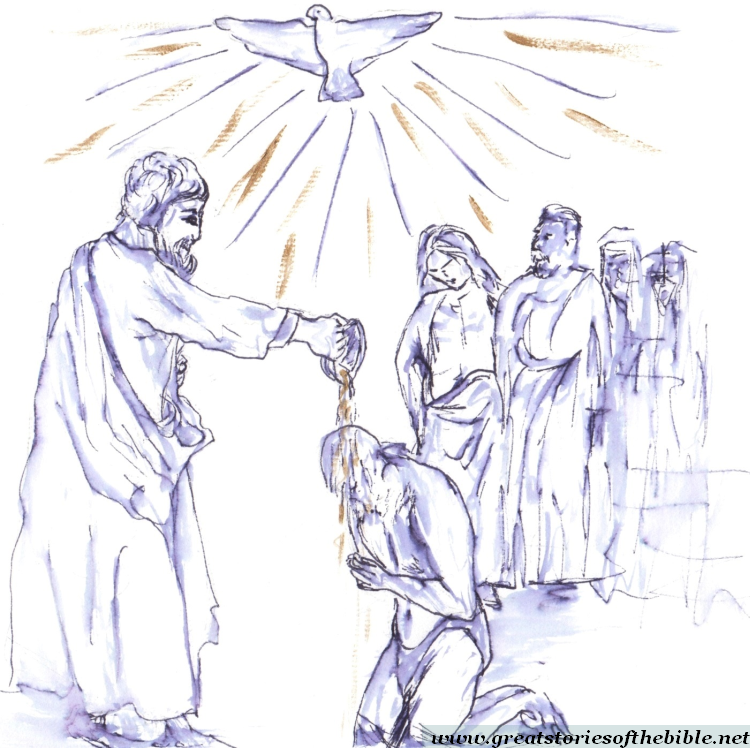Letter to the Colossians
The circumcision of Christ
Colossae was a city of the Roman Province of Asia, situated in river Lycos valley; its evangelist was «Epaphras», one of Paul’s mission partners (see Col 1,7). The authorship of the letter to the Colossians is discussed: the differences in style and lexicon with the other Pauline letters and the similarities with the letter to the Ephesians make some scholars think that maybe the writer is one of Paul’s disciples. However, if we accept the apostle’s authorship, the date of the writing can be around the 60s of the I century AD (during Paul’s Roman incarceration). The letter can be divided into two parts: the first one (chapters 1-2) is about doctrine (the contents of the Faith) and speaks of Christ’s authority over the universe and of the fullness of life that Christians can receive only in Him; the second one (chapters 3-4) includes the subsequent moral recommendations to lead a “resurrected” existence (see Col 3,1). Paul writes to alert the Colossians regarding the diffusion of “philosophies” (intended in the broad sense as systems of thought that embrace ideas on the world, man/woman, religion) that put Christ on the same level of «the elements of the world» (the celestial bodies?) and of «angels». We do not know exactly which doctrines the apostle speaks about: maybe they are part of a syncretistic worship, that combines elements coming from different religions (elements of the universe and astrology from the paganism; angels, food laws, “feast days, new moons, Sabbaths” from Judaism). Paul clarifies that Christ is not one mediator among all: only in Him there is salvation. «Be careful that you do not let anyone rob you through his philosophy and vain deceit, after the tradition of men, after the elements of the world, and not after Christ. For in him all the fullness of Deity dwells in bodily form [really], and in him you are made full, who is the head of all principality and power; in whom you were also circumcised with a circumcision not made with hands, in the putting off of the body of the flesh, in the circumcision of Christ; having been buried with him in baptism, in which you were also raised with him through faith in the working of God, who raised him from the dead. 
You were dead through your trespasses and the uncircumcision of your flesh. He made you alive together with him, having forgiven us all our trespasses, wiping out the handwriting in ordinances which was against us; and he has taken it out of the way, nailing it to the cross; having stripped the principalities and the powers, he made a show of them openly, triumphing over them in it» (Col 2,8-15). Christ is the head of every angelic power; circumcision, which from Abraham onwards is the sign of the membership to God’s Elected People, is no more putting off a part of the body (the foreskin) but the whole «old man» (Col 3,9). This can happen through Baptism, that produces a real “death” of the previous life with all its sins and a resurrection as a new man «after the image of his Creator» (see Col 3,10). God’s total forgiveness is efficaciously represented by the document in which are written «our trespasses»: it is nailed to Christ’s cross and therefore cancelled. That metaphor can allude to the signs that the Romans hanged up to indicate the reason of a crucifixion (see e.g. John 19,19-22): «For him who knew no sin he made to be sin on our behalf; so that in him we might become the righteousness of God» (2Cor 5,21).
«Let no man therefore judge you in eating, or in drinking, or with respect to a feast day or a new moon or a Sabbath day, which are a shadow of the things to come; but the body [the reality, the substance] is Christ’s. Let no one rob you of your prize by a voluntary humility and worshipping of the angels, dwelling in the things which he has seen, vainly puffed up by his fleshly mind, and not holding firmly to the Head, from whom all the body, being supplied and knit together through the joints and ligaments, grows with God’s growth. If you died with Christ from the elements of the world, why, as though living in the world, do you subject yourselves to ordinances, “Do not handle, nor taste, nor touch” (all of which perish with use), according to the precepts and doctrines of men? Which things indeed appear like wisdom in self-imposed worship, and humility, and severity to the body; but are not of any value against the indulgence of the flesh» (Col 2,16-23). Here we have a glimpse of what the new “philosophies” proposed to the Colossians: a participation in the angels’ worship to God, through visions made possible by the body mortification (the food norms) and by a calendar that precisely indicates the holy times (“feasts, new moons, Sabbaths”). The «flesh», as we wrote in the last posts, points out the condition of human fragility and weakness in which sin can settle (it includes the body, without being limited to it: you can see «the works of the flesh» listed in the letter to the Galatians). From there false wisdom originates; it seems to be humble, but indeed it is bloated of pride because it does not recognize that the only salvation comes from Christ and not from «precepts and doctrines of men». Christ is «the body» (the reality), all the remainder is ephemeral «shadow».
In the next post we will examine the first and the second letter to the Thessalonians.